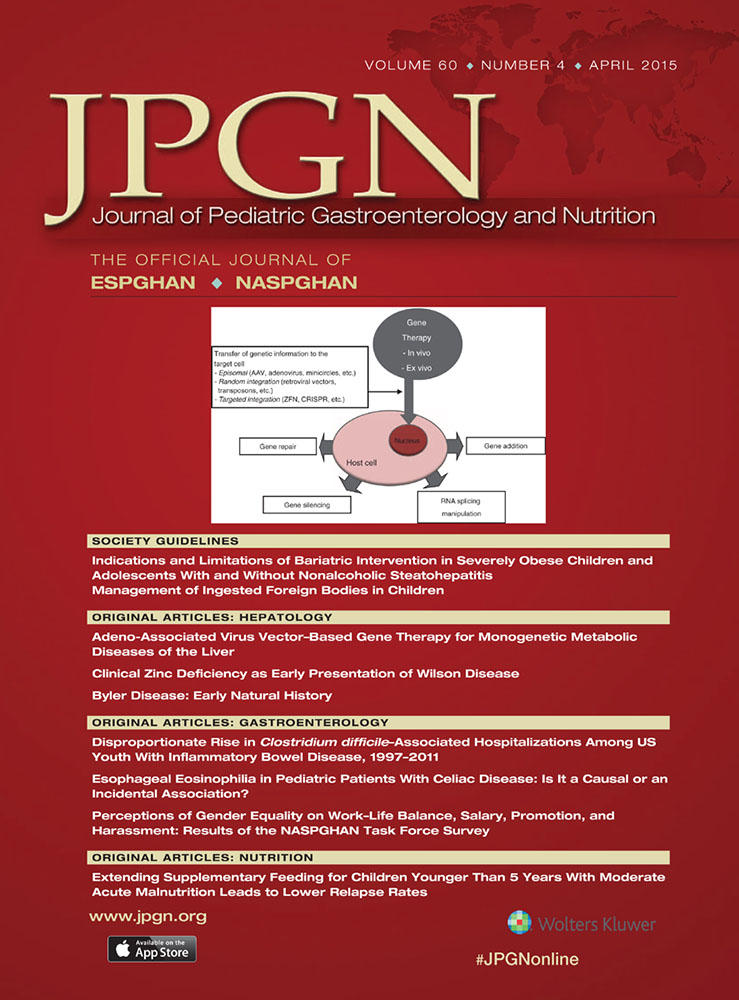The Gastrointestinal Endoscopy Competency Assessment Tool for Pediatric Colonoscopy
Supplemental digital content is available for this article. Direct URL citations appear in the printed text, and links to the digital files are provided in the HTML text of this article on the journal's Web site (www.jpgn.org).
The abstract of an earlier version of this article was presented at the 2013 North American Society for Pediatric Gastroenterology, Hepatology, and Nutrition Annual Meeting, the 2014 Ottawa Conference, and the 2014 Digestive Diseases Week conference.
This project was supported by an American Society of Gastrointestinal Endoscopy Quality in Endoscopic Research Award. C.M.W. is a doctoral fellow of the CIHR Canadian Child Health Clinician Scientist Program, the recipient of a Department of Paediatrics Research Fellowship (The Hospital for Sick Children), and a Postgraduate Medical Education Award, University of Toronto. The other authors report no conflicts of interest.
ABSTRACT
Objectives:
Validated assessment tools are required to support competency-based education. We aimed to assess the reliability and validity of the Gastrointestinal Endoscopy Competency Assessment Tool for Pediatric Colonoscopy (GiECATKIDS), an instrument developed by 41 North American experts using Delphi methodology.
Methods:
GiECATKIDS consists of a 7-item global rating scale (GRS) and an 18-item checklist (CL). An attending physician assessed 104 colonoscopies performed at 3 North American hospitals by 56 endoscopists, including 25 novices (<50 previous procedures), 21 intermediates (50–250), and 10 advanced endoscopists (>500). Another observer rated procedures to assess interrater reliability using intraclass correlation coefficient (ICC). Test–retest reliability was measured with ICC comparing endoscopists' first and second procedure scores. Discriminative validity was examined by comparing experience level with scores. Concurrent validity was assessed by correlating scores with colonoscopy experience, cecal and terminal ileal intubation rates, and physician global assessment.
Results:
Interrater reliability of the GiECATKIDS was high (total: ICC = 0.88; GRS: ICC = 0.79; CL: ICC = 0.89). Test–retest reliability was excellent (total: ICC = 0.94; GRS: ICC = 0.94; CL: ICC = 0.84). GiECATKIDS total, GRS, and CL scores differed significantly among novice, intermediate, and advanced endoscopists (P < 0.001). There was a significant positive correlation (P < 0.001) between scores and number of previous colonoscopies (total: ρ = 0.91, GRS: ρ = 0.92, CL: ρ = 0.84), cecal intubation rate (total: ρ = 0.82, GRS: ρ = 0.85, CL: ρ = 0.77), ileal intubation rate (total: ρ = 0.82, GRS: ρ = 0.82, CL: ρ = 0.80), and physician global assessment (total: ρ = 0.95, GRS: ρ = 0.94, CL: ρ = 0.89).
Conclusions:
The GiECATKIDS demonstrates strong reliability and validity as a measure of performance of pediatric colonoscopy that can be used to support training and assessment.




